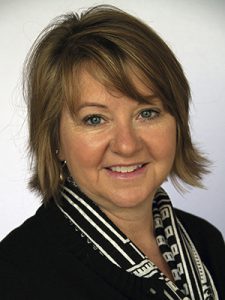Product serves vital need in high deductible health plans
As deductibles in employer health plans continue to rise, employees are increasingly vulnerable to the financial consequences of accidents. Many live paycheck-to-paycheck and can ill afford to self-insure the accident risk; those who do manage to save money do so for vital purposes, such as educating children or their own retirement.
Accident-related expenses can seriously derail those plans.

—Joyce Segall
Chief Underwriting Officer,Head, Domestic Accident & Health
Starr Companies
This below-the-deductible gap in protection experienced by so many health insurance plan participants has helped boost accident insurance sales. “Although the overall voluntary accident market has experienced double-digit growth in recent years, it’s still in the frontier phase,” says Steve Hesler, assistant vice president, product development, at Colonial Life. “There’s plenty of room for further growth.”
Danielle Lehman, voluntary product manager of The Standard, agrees. “There are many employers that still have not added accident insurance to their benefits menu.”
Hesler points out that property/casualty-based brokerage firms with benefits business may have an opportunity to sell accident insurance. “A lot of property/casualty firms may have avoided expanding into accident and other voluntary supplemental benefits because of confusion surrounding healthcare reform,” he says. “Now that some of that confusion has lessened, they can be looking at these opportunities.”
Colonial Life often links its voluntary accident product with hospital indemnity and critical illness (CI), either as a package or as riders. At Unum, Colonial Life’s sister company, the strategy is much the same, says Simon Milazzo, Unum’s voluntary benefits products manager. “Each of these products can be structured with customized plan designs to provide complementary coverage to any given customer’s core benefits,” he says.
The Standard, a long-time provider of life and disability coverages, added accident, critical illness, and hospital indemnity to its voluntary line-up two years ago. “We’re excited about it,” says Lehman. “Most brokers we work with recognized the opportunity these new coverages present, and it was a simple transition for them.
“The majority of the time we offer accident in benefit plans along with life, disability, and critical illness,” says Lehman. “For our plan participants, probably half of those we cover will choose critical illness and accident together; the other half will select either accident or critical illness.”
The Standard provides three tiers of accident benefits for employers to select from—each providing increasing payout amounts. Employers can choose whether the coverage will be 24-hour coverage or for off-the-job accidents only.

—Steve Hesler
Assistant Vice President, Product Development
Colonial Life
The Standard’s accident plan also includes a youth organized sport benefit for covered children of plan participants. It pays an additional 25% to the regular accident claim owed if the child is injured while participating in an organized athletic activity, such as a dance class, football practice, or soccer game.
“This provision is really popular with people who have kids in sports,” says Lehman. “They have a feeling they will need it.”
Employers also can choose to add two options to The Standard’s voluntary accident plan. The first is auto accident coverage, which provides an increased amount of protection when a covered injury is caused by an auto accident. “Approximately 25% of accidents are car accidents,” says Lehman. “So this is a risk that resonates with people of all ages.”
The other accident plan option The Standard offers to employers is related more to general health than the accident risk. It provides an annual payment for the completion of wellness exam screenings, including mammograms, lipid panels, and colonoscopies. “For those employers that are trying to promote wellness initiatives within their company, it gives them one more incentive to offer,” says Lehman.
“For participants, the only accident product decisions they need to make are whether to enroll and who in their household will be included on the policy. We’ve found that if we offer too many choices, the employee becomes overwhelmed and may not purchase any coverage,” says Lehman.
Hesler of Colonial Life agrees. “We continue to try to make our accident product more robust without making it too complex. Otherwise, employees become overwhelmed.”
Colonial Life recently introduced a voluntary accident plan that includes two new built-in coverage features. One is coverage for treatment of post-traumatic stress disorder from a covered accident; the other pays for treatment provided by telemedicine.
“Utilizing telemedicine instead of office visits can help reduce the employer’s costs,” says Hesler, “because telemedicine services typically are not filed with the major medical carrier. A virtual office visit also reduces time away from work, providing savings for the employer and employee.”
The plan also includes new options—a wellness benefit that pays for routine preventive care; an “active lifestyles” feature that boosts benefits by 20%; and a gunshot wound benefit for expenses from a nonfatal gunshot wound.

—Danielle Lehman
Voluntary Product Manager
The Standard
Sponsor-paid and voluntary coverage
Starr Companies is a global insurance and financial services company. Through its operating insurance companies, Starr provides a variety of coverages including accident and health (A&H), property and casualty insurance. Starr takes a different, customized approach to accident insurance. It writes both group/sponsor-paid as well as voluntary accident policies, and much of its business comes through brokers who specialize in Starr’s target markets. In many cases, the accounts are cross-sold to include liability protection.
Among Starr’s business classes that include accident coverage are business travel, leisure travel, youth and amateur sports organizations, childcare centers, camps, nonprofits and public entities.
“We have a lot of brokers who have expertise in college sports, business travel accident, or K-12 student accident business,” says Joyce Segall, head, domestic accident and health, at Starr Companies. “We’re able to provide financial protection by making sure that covered medical costs are taken care of, whether it’s a child playing Little League who has an accident or a business person traveling overseas who becomes ill or is injured in an accident.
“There are a lot of factors to consider in pricing and underwriting travel accident coverage,” Segall explains. “For business travel, it can depend on job classifications, number of travel days, the countries they go to, the work they do, and the coverages involved, including possibly political evacuation and war risk.
“A business person could be thousands of miles away from his or her home country and have an illness or injury that requires immediate medical attention. For business travelers covered by qualifying plans, our travel assistance company can coordinate the care decisions with doctors, ensuring that the employee is in an appropriate medical facility for the care he or she needs. If eligible, Starr would pay the cost of flying in family members to be with the injured or ill person, and, if medically necessary, to fly the business person home to recuperate.”
For Starr’s leisure travel accident policies, underwriters can tailor coverage to the specifics of an individual’s travel itinerary. Some of this business originates through travel organizations that book trips for individuals.
“Last year a broker came to us looking for typical participant accident coverage,” Segall recalls. “A group of kids was traveling from a Northeastern state to Florida to go scuba diving.It’s not unusual for us to broaden the accident coverage beyond the risk the group is seeking to cover—in this case, scuba diving. We wanted to provide comprehensive coverage for the teenagers if someone were to get hurt in the parking lot of a restaurant, for example, or for possible cancellation of their flight. We were able to listen to our client’s needs and create a robust protection package that went well beyond the scuba diving risk.”

—Simon Milazzo
Voluntary Benefits Products Manager
Unum
Enrollment
The voluntary benefits executives at Colonial Life, Unum, and The Standard all stress the importance of educating plan participants on the features of accident insurance as part of the enrollment experience. They all offer multiple means of enrollment including online, on the phone and one-on-one.
“We offer accident and other supplemental health products because employers are looking for financial protection for their employees with high- deductible health plans,” says Lehman of The Standard. “We have to make sure employees understand how the product can serve their needs. We use videos under two minutes in length to explain accident insurance and provide claims examples, showing what accident insurance would pay.
“We also customize the enrollment based on what the broker and sponsor company want, and help them develop personalized materials to educate and enroll employees,” she adds.
At Unum, Simon Milazzo says, “Face-to-face enrollments have historically generated the best results in terms of gaining employee understanding, engagement and participation in accident and other supplemental health products.” The company has a network of some 10,000 sales counselors designated for this purpose.
“Our experience has been that Millennials have responded particularly well to one-on-one counseling,” says Hesler of Colonial Life.
The accident specialists agree that the accident product design and the way it is delivered will continue to evolve to serve the ever-changing benefits market. “We expect insurers to continue to provide additional flexibility with options for additional covered events, customizable plan designs and funding mechanisms,” says Milazzo.
Lehman says, “One trend we’ve seen in the marketplace is employers paying the accident premium for the employee and offering the option of employee-paid coverage for dependents.”
One thing won’t change. Accidents, in one form or another, will always happen. We all have our stories of these unfortunate events. Fortunately, in an era when medical costs continue to rise and employers must alter the way they help employees deal with all medical risks, accident coverage can provide a solution tailored to the needs of individual plan participants.
For more information:
Colonial Life
www.coloniallife.com
Starr Companies
www.starrcompanies.com
The Standard
www.thestandard.com
Unum
www.unum.com
The author
Thomas A. McCoy, CLU, retired in 2013 as editor-in-chief of Rough Notes magazine.






